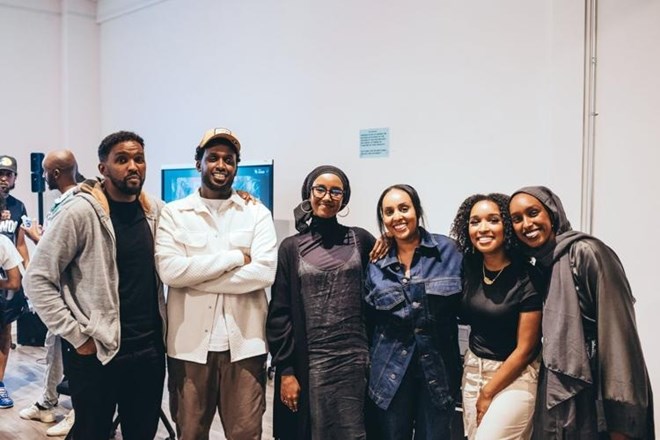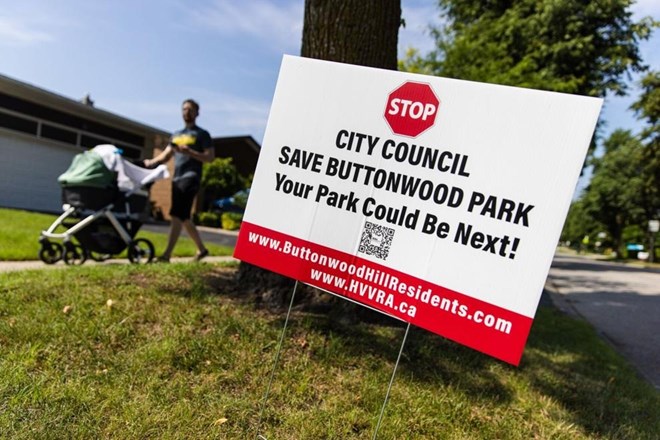
Wednesday July 17, 2024

From left, Zakaria Abdulle, Abdifatah Hussein, Halla Ahmed, Deqa Egal, Rihana Mohamed and Hamdi Ali are working to establish a Somali Centre for Culture and Recreation in Toronto, which they say will provide important opportunities for the Somali community and other residents. Supplied photo
TORONTO, Canada (HOL) — Toronto's Somali community is facing major hurdles in their efforts to establish a cultural and recreational center in Etobicoke, as local residents and political figures express strong opposition to the proposed location in Buttonwood Park. The Somali Centre for Culture and Recreation (SCCR), envisioned as a vital hub for cultural exchange and community support, has become a focal point of controversy, reflecting broader issues of urban planning and community development.
. Organizers say the SCCR project represents more than just a building for Toronto's Somali community. It embodies over 40 years of advocacy and aspirations to address the severe lack of public amenities and social infrastructure available to Somali-Canadians. The center aims to provide high-quality opportunities for both the Somali community and the broader public, fostering cultural understanding and unity among Torontonians.
The SCCR has been actively involved in promoting Somali arts and culture. Notably, it introduced the "Dhis Bulshada" exhibit at Toronto's Nuit Blanche, which showcased over 40 years of community advocacy through Somali arts, culture, and heritage. The exhibit featured ancient artifacts, contemporary art, and music, highlighting the rich cultural contributions of the Somali community in Toronto.
Zakaria Abdulle, chair of the SCCR, highlighted the center's importance, stating, "It is absolutely vital for civic leaders to support Black communities by investing in their needs and creating opportunities for social and economic advancement."
Despite the center's potential benefits, the proposal to build it in Buttonwood Park has met fierce resistance from local residents. The Buttonwood Hill Residents Association, led by president Christina Manulak, has been particularly vocal, arguing that the community was not adequately consulted and expressing concerns about the loss of valuable green space. This opposition has garnered support from political figures, including Ontario Premier Doug Ford and local representatives such as Councillor Stephen Holyday and MPP Kinga Surma.
Manulak emphasized the community's urgent need to preserve green spaces, especially with anticipated population growth due to nearby condo developments. "We support a Somali Recreation and Culture Centre in Etobicoke Centre," she said. "But under no circumstances should parkland or any type of green space be sold for development."

As of Friday, there was a “Save Buttonwood Park” sign on the lawn of nearly every home in the Buttonwood Hill neighbourhood. Nick Lachance Toronto Star
The proposal was scheduled for discussion at Mayor Olivia Chow's executive committee but has been delayed to allow for further public consultation. Councillor Amber Morley introduced a motion to defer the decision until October to ensure more inclusive community engagement. This motion passed unanimously, reflecting the city's acknowledgment of the need for broader community involvement.
Mayor Chow, who has expressed support for the Somali community's aspirations, admitted to flaws in the initial consultation process. "Somehow the process got messed up, and the community didn't understand or know that it was happening," she stated. Her office has indicated a willingness to work collaboratively to find a suitable location for the center.
The Somali community remains determined to see the SCCR project realized, emphasizing its potential benefits for cultural exchange and community building. Abdulle reaffirmed their commitment to finding the best location through community input. "This center is not just for the Somali community; it's for everyone. We want to bring communities together, create a space for cultural exchange, and serve as a benefit to all Torontonians," he said.
The deferred decision provides an opportunity for further dialogue, with the hope that a location can be found that meets the needs of both the Somali community and local residents. This ongoing process will test Toronto's ability to balance the developmental needs of marginalized communities with the preservation of public spaces.